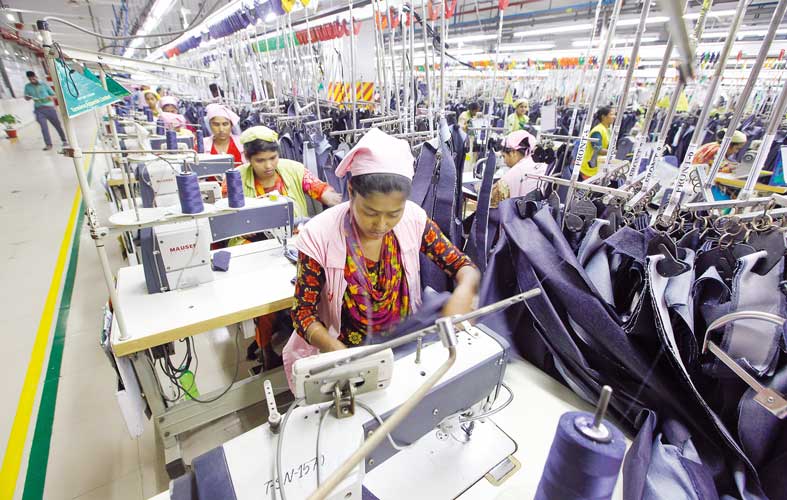Mir Mostafizur Rahaman | April 16, 2020 Financial Express
Bangladesh Garment Manufactur-ers and Exporters Association (BGMEA) has decided to reopen its factories from April 26 in a bid to, what they said, save the sector from being doomed.
However, economists say the factories should be reopened phase by phase and under strict supervision to prevent further worsening of the corona pandemic situation.
Talking to the FE on Wednesday, BGMEA president Rubana Huq said, “We have decided to open our factories from April 26 as our back is pushed to the wall.”
“We will call back our workers and start production, otherwise we cannot survive,” she said.
“Already we have faced cancellation of work orders worth US$3.5 billion.”
Asked how they would ensure the safety of the garment workers, she said necessary measures for monitoring the health conditions of the workers will be ensured but they will also have to maintain necessary precautions at their homes.
It is not possible on our part to arrange accommodations of such a large number of people, she added.
Defending their move, she also said Bangladesh’s main competitors in the sector, including Vietnam and Cambodia, keep their factories open despite the coronavirus pandemic.
RMG sector accounts for around 84 per cent of the country’s $40 billion exports and generates employments for four million workers.
Referring to the payment of workers’ wage she said, “We are taking loan from the banks to pay their salary but ultimately we have to carry the burden.”
Responding to a question why BGMEA always seeks government aid during a crisis, she said, no garment owner has liquidity to pay three-month salary to the workers. ‘For example, I have to pay Tk 150 million as monthly salary to my workers and if the factories remain closed for three months, I have to pay Tk 450 million,” she added.
On the other hand, commenting on the decision, Dr Ahsan H Mansur, executive director of Policy Research Institute of Bangladesh, said there is no alternative but to reopen factories. But it should be in phases, he added.
“At first, they can reopen the factories which have work orders. And after evaluating the situation for some days, they can take next step,” he added.
He also suggested reducing the number of workers in a shift to maintain Covid compliance.
Dr Mansur argued that the country like Bangladesh cannot afford western-style lockdown as “we have a large number of people who cannot survive if they are out of work for long.”
And due to resources constraints, it is tough for us to feed this huge population of around 50 million.
It may be mentioned that the government keeps the export-oriented sector out of the lockdown. But BGMEA faced severe criticism from the civil society when it attempted to reopen its factories during the second phase of the lockdown.
Thousands of workers rushed to the capital and adjacent garment hubs from remote areas of the country amid the countrywide lockdown.
But on the next day, they had to go back home when entrepreneurs backtracked on their decision to reopen the factories amid severe criticism.
mirmostafiz@yahoo.com

